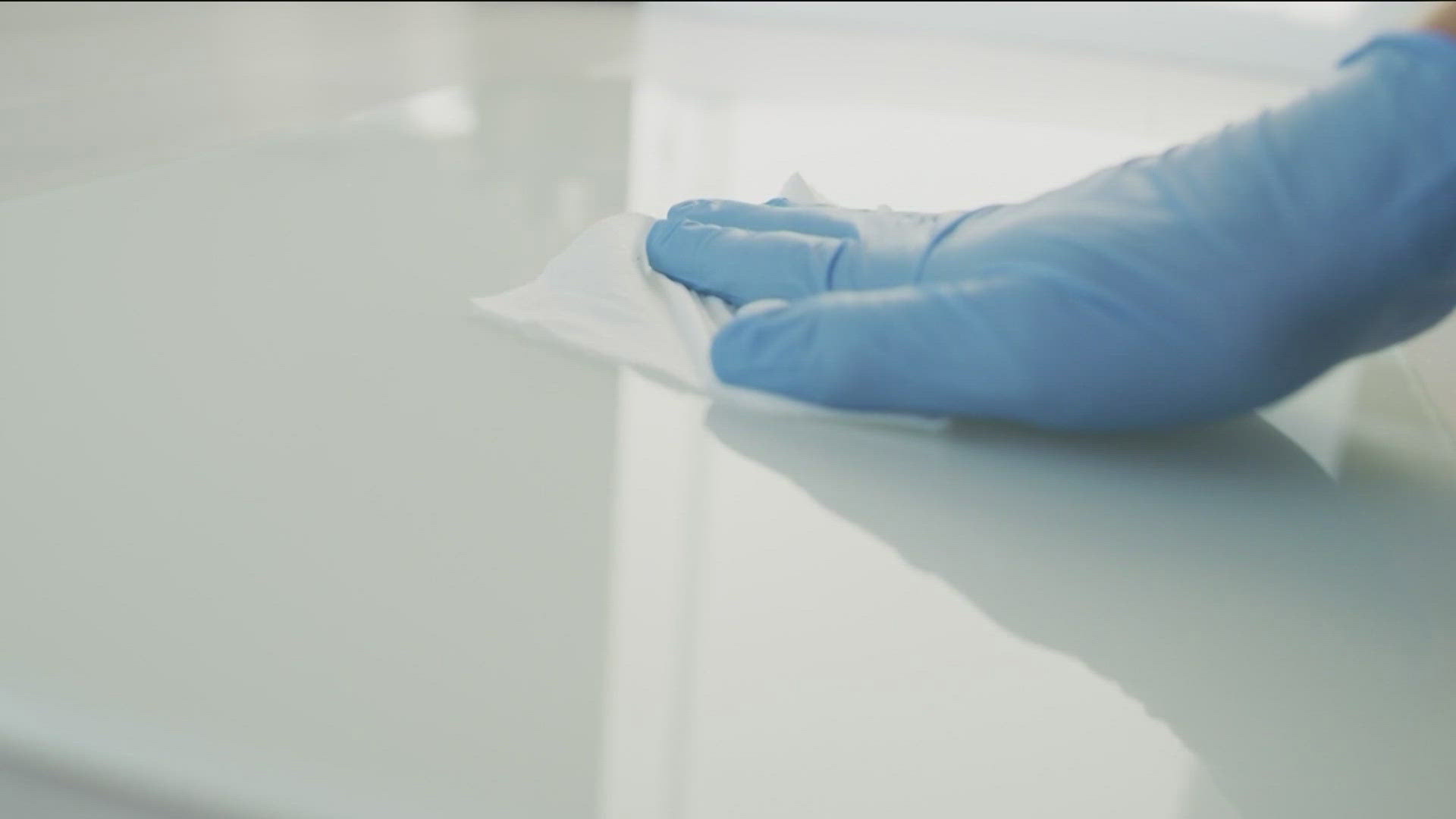AUSTIN, Texas — They’re a go-to cleaning staple. Disinfecting wipes seem like an easy way to spruce up a dirty surface. But depending on who’s around – especially young children – using them might do more harm than good. Consumer Reports reveals the downsides of disinfecting wipes – and what you can use instead.
Sales of disinfecting wipes skyrocketed in the early days of the pandemic. Disinfecting wipes are convenient, sure -- but it turns out they're often overkill for a simple cleaning job.
Products labeled as disinfectants aren’t simply cleaners. They also contain pesticides, and because of this, they require more careful handling than you might expect for a product that frequently appears on back-to-school supply lists.
In many disinfecting wipes, the active ingredients include quaternary ammonia compounds, or quats for short. They’re effective at killing germs and are even used for infection control in some healthcare settings like hospitals. But quats can also trigger health problems like lung irritation, asthma, and allergies.
These effects are especially concerning for kids, because they breathe more air per pound of body weight than adults. No kids should be handling disinfecting wipes. “Keep out of reach of children” is right there on the label.
The American Cleaning Institute said in a statement to Consumer Reports, Disinfectants are safe when used as directed. Disinfectants should not be applied by children.
Most routine household chores require cleaning but not disinfecting. Old-fashioned soap and water will do the trick.
If you like wipes' convenience, there are plenty that clean, but don’t disinfect. The EPA has a list of cleaning products that are considered to be safer than others.
But, certain situations … like a stomach bug … call for disinfecting to prevent the spread of infection. Thoroughly clean and disinfect the surface, and allow plenty of time for the area to dry. Make sure young kids are not in the room for a while.
And speaking of kids, if your kids’ school uses disinfecting wipes, Consumer Reports says you may want to ask if the wipes will be stored out of reach of kids—and that no kids will be using them. And if your child has a respiratory condition, such as asthma, your doctor can write a letter requesting wipes not be used around your child.

